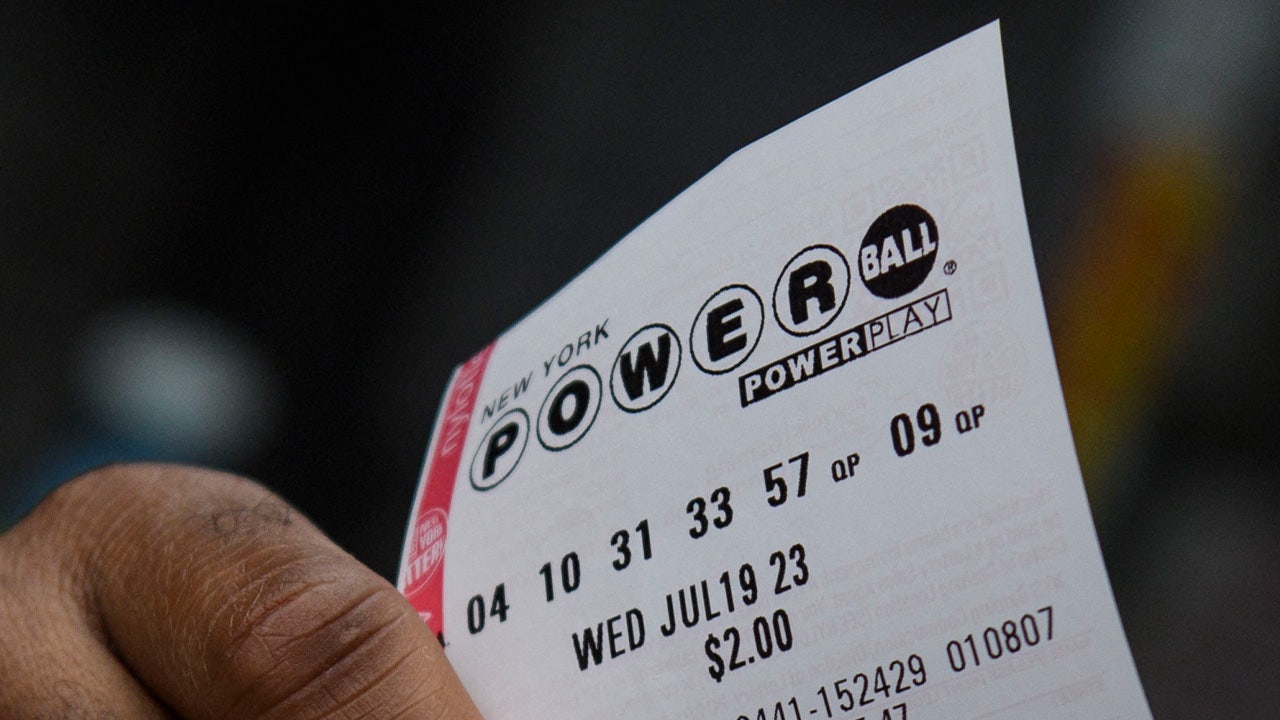Finance
If you win the lottery, these are steps to take ASAP

One lucky winner Powerball winner in California is sitting with the $1.08 billion ticket drawn Wednesday night and 36 others, across various states, won $1 million on individual tickets. Plus, this coming Friday’s Mega Millions is approaching $750 million.
Lottery fever is sweeping the country. If you are the lucky one with a winning ticket, what should you do? We asked a money expert about what money moves you should make if you hit the jackpot.
What are the first steps to take?
Emily Irwin, managing director, advice & planning, at Wells Fargo’s Wealth & Investment Management, who is based in Minneaplois, MN, says to take a moment to (privately!) enjoy the big moment! Next, she advises you to assemble a team who will be able to provide you with education and guidance on topics such as tax planning, privacy, wealth management, and asset protection. “Typically, this team may comprise an attorney, accountant, investment professional, charitable advisor, and possibly even an insurance specialist,” Irwin tells FOX Business. “Set a communication plan and short-term/longer-term budget.”
MEGA MILLIONS JUMPS TO $720 MILLION
What are the advantages of a lump sum payment versus yearly payout?
According to Irwin, the advantage of the lump sum payment is that you’ll receive it immediately and have flexibility as to how the money is invested. “You’ll also have more options available to you regarding asset allocation,” she says.
These are multiple funds that offer broad exposure to stocks, gold, oil and bonds, for example as well as other asset classes.
By contrast, if you know that you can’t say “no” to friends and family or are inclined to spend $1.50 when you have $1, then you may be better off with the annuity payment because it’ll provide you with the security of knowing that you’ll receive a steady stream of payments, annually, Irwin explains.
How can you find advisors you can trust?
Irwin recommends that lucky lottery winners review professional organizations and focus on advisors who specialize in planning for ultra-high net worth individuals.
| Ticker | Security | Last | Change | Change % |
|---|---|---|---|---|
| SPY | SPDR S&P 500 ETF | 452.27 | -2.96 | -0.65% |
| GLD | SPDR GOLD SHARES TRUST – EUR ACC | 182.77 | -0.91 | -0.50% |
| IVV | ISHARES TRUST CORE S&P 500 ETF | 454.65 | -3.03 | -0.66% |
| BND | VANGUARD BD INDEX FUND INC TOTAL BOND MARKET ETF | 72.52 | -0.39 | -0.53% |
| USO | UNITED STATES OIL FUND L.P. | 68.11 | +0.40 | +0.59% |
How to protect your ticket?
If you hold a winning lottery ticket, Irwin suggests taking a picture of yourself with your ticket. “But, do not post that picture to social media,” she cautions.
You may also consider keeping it in a safety deposit box.
And, she recommends holding off on signing the ticket until you consult with your professional team of advisors to ensure that you don’t inadvertently forgo any anonymity by accepting your lottery winnings under your own name.
How can you protect and ensure your privacy?
Irwin tells FOX Business that you should keep the news of your winnings to a close circle of confidants and by all means, don’t post on social media.

What tax implications should you understand?
Lottery winnings are subject to federal income tax, and, in some states, state income tax, she says. “The lottery automatically withholds 24% for federal income taxes, however, if you’re lucky enough to be holding the winning jackpot ticket, then you’ll be taxed at the highest rate of 37% and need to set aside funds to pay the difference,” Irwin tells FOX Business. “State income taxes vary state-by-state.”
What is the top do and don’t should you win this lottery?
A strong “do” is to show up for work the next day, says Irwin, but “don’t” make any major life changes for at least three months.
How to not feel compelled to give handouts
Your professional team isn’t just there to guide you on the nuts-and-bolts of taxes; it’s critical to select a team of advisors who can work with you to identify and memorialize your values and goals for your finances, says Irwin. “You may find that writing a mission statement identifying causes that you’re passionate about will help you say ‘yes’ and ‘no’ with grace,” she continues. “You may also wish to have a protocol in place for family and friends who may ask you for gifts or loans, or expect you to finance expenses such as education, travel, or even daily expenses.”
Read the full article here


















